It's goodbye from uspublished at 17:19 GMT 20 December 2022
Thanks very much for joining our coverage this afternoon.
Today's writers were Sam Hanock, Marita Moloney and Sam Francis.
The editors were Chris Giles and Jeremy Gahagan.
Rishi Sunak faces questions from the Liaison Committee of senior MPs for the first time
He commits to full support for Ukraine after he's quizzed about reports he’d asked a review of UK support for the war-torn country
Sunak refuses to be drawn on Rwanda figures when asked how many people in total the government plans to send there by the end of next year
When pushed for a figure, he says he can't provide one because the scheme represents a "commercial contract"
The PM also refuses to rule out the prospect of motorists facing a 12p-a-litre hike in fuel duty in March
A 23% increase in the duty is pencilled in for March 2023, but chancellors have repeatedly frozen the levy
Edited by Chris Giles and Jeremy Gahagan
Thanks very much for joining our coverage this afternoon.
Today's writers were Sam Hanock, Marita Moloney and Sam Francis.
The editors were Chris Giles and Jeremy Gahagan.
Rishi Sunak has now concluded facing the Liaison Committee after answering questions from the heads of 14 key Parliamentary committees.
Here's what we learned from his first appearance at the committee since becoming PM:
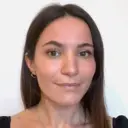 Ione Wells
Ione Wells
Political correspondent
This was not a very notable Liaison Committee appearance, which is probably exactly what No 10 could have hoped for right now.
With a huge in-tray facing the prime minister - from strikes to small boats to inflation hitting people's pockets - the questions could have been a lot more heated.
The real test may come when the prime minister, and MPs, are back from their Christmas break in January.
If ministers want to avoid trickier questions from MPs in the new year, they'll have to demonstrate their plans to tackle those issues will actually deliver results.
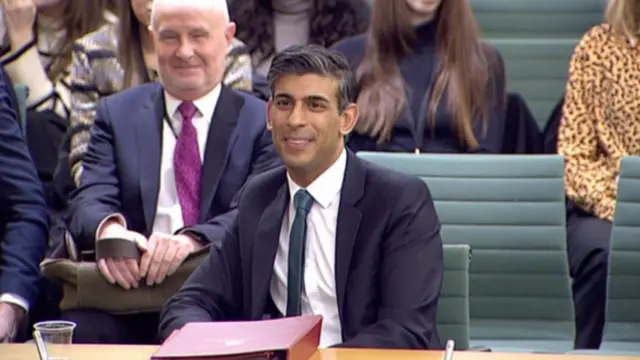 Image source, HoC
Image source, HoCAfter closing his notebook, Sunak is told by chairman Sir Bernard Jenkin that he hasn't been "as generous with your time as your predecessors [sic]" but is thanked all the same.
"We're very grateful you managed to fit us in before Christmas," Jenkin says. "You've also answered the questions very fully, whether satisfactory or not is not a matter for me."
And with that, Sunak is wished a Merry Christmas before he heads out of the committee meeting room.
Where is your independent ethics adviser?
That's the next question to the prime minister, from Labour MP Catherine McKinnell.
"I'm hopeful I can make an announcement on that soon. It's important for me to get someone I think is right for the job and rest assured I'm hard at it and hopefully we can have an announcement soon," Rishi Sunak replies.
Robin Walker, who's a member of the Northern Ireland Affairs Committee, is up now. He asks whether Sunak thinks the controversial Protocol (a post-Brexit measure) will be in place by the 25th anniversary of the Good Friday Agreement next May.
The PM says he's been clear that he hasn't put an "arbitrary" or "strict" deadline on talks around the Protocol, saying this isn't necessarily helpful.
"What I am committed to doing is working constructively with our European partners to resolve the very clear challenges it presents to Northern Ireland's place in the union," Sunak tells the committee.
More now from Joanna Cherry, who asks when the British Bill of Rights bill, which will replace the Human Rights Act, will get a secondary date.
In September, the government of former PM Liz Truss shelved the plans for a law designed to give ministers the power to ignore human rights rulings from the European Court of Human Rights (ECHR).
Rishi Sunak says he doesn't have a specific date for when the bill will be brought before Parliament again.
Asked if it has been de-prioritised so he can concentrate on new immigration legislation instead, Sunak says: "As I'm a new prime minister, you would expect me to look at the entire legislative programme, and then make decisions on that basis, some things we need to do sooner rather than later.
"We're keen to deliver on illegal migration, and that's something that I've said as a priority."
 Ione Wells
Ione Wells
Political correspondent
The prime minister is clearly choosing his words in this session carefully.
What he is not saying is almost more likely to prick up listeners' ears than what he is saying.
For example, he refused to rule out the prospect of motorists facing a 12p-a-litre rise in fuel duty in March.
He also refused to be drawn on whether or not the UK will need to leave the European Convention of Human Rights to implement his asylum plans - and send away anyone who does not arrive through an official legal asylum scheme.
Generally, though, this is a relatively calm series of exchanges compared to some of the very heated ones we saw under his predecessor Boris Johnson.
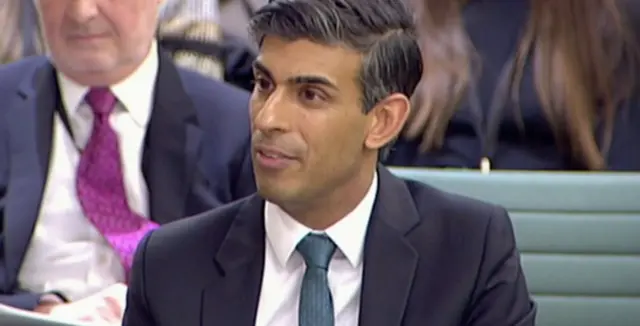 Image source, HoC
Image source, HoCNext up, Sir William Cash asks Sunak about European laws that continue to affect the UK - despite the 2016 Brexit referendum.
He says this has a particularly harmful impact on issues such as children finding harmful content online, referencing the Online Safety Bill and the death of 14-year-old Molly Russell.
The PM says he believes the Bill is a "world-leading piece of legislation designed to ensure big tech companies" take better care to safeguard children.
Pushed on whether he'll meet with those concerned about this, Sunak defers to Culture Secretary Michelle Donelan and says he'll ask her to look into this in the new year.
Despite repeated attempts by the SNP’s Pete Wishart, Sunak refuses to entertain the idea of calling a new Scottish Independence referendum.
The SNP wants the next general election to be a "de facto referendum" on independence, after the Supreme Court ruled that the Scottish Parliament does not have the power to hold an actual referendum without the UK government's consent.
Wishart, who chairs the Scottish Affairs Select Committee, says Sunak "is going to have to address" calls for another referendum.
But Sunak argues that the Scottish people would like their government "to focus on the issues that are most pressing to the at the moment.
Over now to SNP MP Joanna Cherry, who asks the prime minister about the UK leaving the European Convention of Human Rights (ECHR).
She cites comments from Home Secretary Suella Braverman who said that ultimately, the UK would need to leave the ECHR, as well from the deputy prime minister Dominic Raab who said last week: "Nothing is off the table for the future."
Rishi Sunak says he's been clear in wanting to deliver an immigration system "which means that when someone comes here illegally, they don't have the right to stay".
The PM is not drawn on whether the UK will need to leave the ECHR, adding that legislation will be introduced next year that he's confident will deliver on the system he wants to put in place in relation to immigration.
WATCH: Sunak is asked to give a personal message to NHS workers and others taking strike action.
Bernard Jenkin continues the line of questioning to the PM about the health system, and asks Rishi Sunak what is his personal message this Christmas to NHS workers and others taking strike action?
"I've always been very clear in expressing my gratitude and admiration for our NHS workers and indeed, our public sector workers across the board for the job that they do and acknowledged that it's difficult for everybody because inflation is where it is," Sunak responds.
He adds that the best way to them, and the rest of the country, is for inflation to reduce as quickly as possible.
"We need to make sure that the decisions that we make can bring about that outcome because if we get it wrong and we're still dealing with high inflation in a year's time, that's not going to help anybody," he says.
"I don't want to see that. I want to see things get back to normal and that's why having an independent pay processes an important part of us making those decisions and getting them correct."
 Ione Wells
Ione Wells
Political correspondent
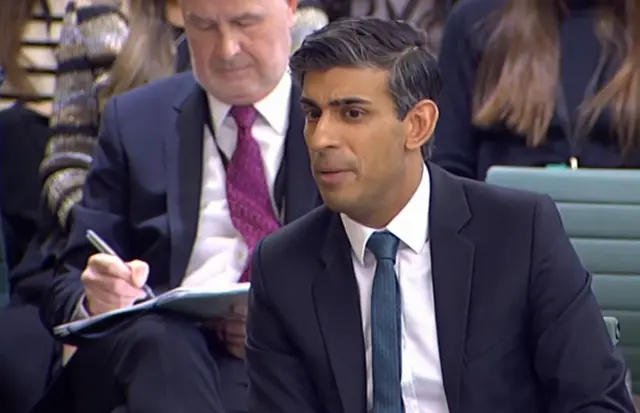 Image source, HoC
Image source, HoCGiven strikes are dominating the political agenda right now, the exchange on this topic was remarkably unnotable.
The prime minister stuck to the lines we have heard repeatedly from the government: that ministers have set NHS pay based on the independent review process, that he has no plans to reform this process, and that he thinks it strikes the right balance between what is affordable for the taxpayer and the need to recruit and retain staff.
Sunak does not sound like a man about to change his insistence that he will not back down against striking workers.
But while this line of questioning was relatively calm, the mood outside is not.
NHS chiefs have raised their concerns for patient safety during tomorrow's ambulance strike.
Asking their questions next is Tory MP Steve Brine, who's chair of the Health Select Committee, though he's ill so is having them read out on his behalf.
He reminds Sunak, from afar, that the committee is meeting on the second day of the nurses' strikes and a day before ambulance workers are due to stage walkouts. Brine asks how big a problem the PM considers this to be - and what he'll do about it.
Sunak says it's "worth bearing in mind" that the NHS pay review body, which made the recent pay suggestions that are being challenged, have long been listened to.
He also says the body will have seen projections for inflation at the time of making their recommendations.
Asked what he'll do if the body comes back next year and recommends more money for NHS staff, Sunak says the government has a commitment to the NHS but avoids being drawn on future pay disputes.
For the latest on the nurses' strike click here.
The chair of the Petitions Committee, Catherine McKinnell, challenges Sunak on his record on keeping women in the workforce.
After a series of questions on support for childcare and early years investment, McKinnell points out that the number of women dropping out of the workforce aged between 25 and 39 "is going up".
She says "progress is going backwards" and due to childcare costs, many mothers are now "paying to go to work".
The prime minister says internationally the UK ranks "as a country with relatively high levels of female participation in the labour force".
But, he admits he doesn’t know if things have got worse.
"There's always work to do," he says.
The cost of living crisis is next on the agenda, with Labour MP Sir Stephen Timms asking Rishi Sunak how he will ensure the number of people accessing support like food banks won't increase again next year.
Is it realistic, Timms asks, for the PM to build a country where no one needs to use a food bank, as Sunak said in the Tory Party leadership contest?
"I'd like to think so," the prime minister says, adding "it's sad that anyone needs to use a food bank".
On how long he thinks it will take to end the need for food banks, Sunak responds: "I think it's important for us to get the economy growing again, the best way to do that is to have an economy that's growing, providing opportunity for people and enable those to support those who can't work.
"And in the short term, we've got a range of different support for people, particularly with food, whether that's free school meals or the food programme and others that will help provide people with extra assistance this winter."
Fuel duty is the next issue put to Sunak, with Tory MP Harriet Baldwin asking the PM to correct a claim made in Chancellor Jeremy Hunt's autumn statement that the levy will rise by 12p in the coming months.
Asked to confirm this will not in fact happen, Sunak says: "Having previously had his [Hunt's] job, I always preferred it when the prime minister made absolutely no comment on future tax policy. So I'll adhere to that."
Pushed on the issue, Sunak says again he'll let his chancellor deal with fiscal policy.
"Tax decisions are those that are made by the chancellor in fiscal statements, and that's the way it should be," the PM adds.
Sunak is asked "what you most regret about your time as chancellor" by chair of the Treasury Committee, Harriett Baldwin.
She accuses him of running a "very loose fiscal policy" while interest rates were low, but the PM disagrees.
"I think I was getting criticism for tightening fiscal policy ahead of others," Sunak says.
He claims he was being told he could "rely on rock-bottom interest rates forever" and borrowing to spend "what we like" - a view that later underpinned the Liz Truss premiership.
Against these claims he attempted to "put public finances on much more sustainable track" after the Covid-19 pandemic, he says.
"I am proud of the record that I have," he adds.
Up next to question the PM is Tory MP Philip Dunne who asks Sunak about the government's environmental commitments.
After the conclusion of the climate conference COP27, Dunnes says he asked the PM how he was going to personally ensure that as the structures for COP26 were dismantled changing how the UK is going to deliver on its nationally-determined contributions.
When asked why he's not chairing the cabinet committee with responsibility for this, Sunak says all decisions come to him as part of a collective agreement process and "the No 10 team are intimately involved in all aspects of it".
"Judge me by my actions in seven or eight weeks. I've already worked closely with cabinet ministers... whether that's offshore wind, nuclear energy efficiency."
 Ione Wells
Ione Wells
Political correspondent
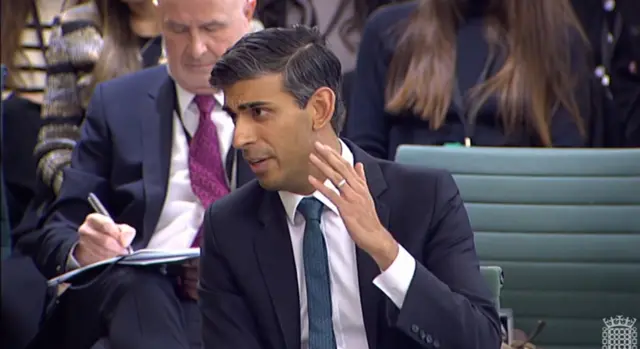 Image source, HoC
Image source, HoCThe prime minister has faced a particularly tense set of questions over migration.
He's recently set out a 'migration' plan to try and stop small boats from crossing the channel.
But some of the questions here foreshadow some of the challenges his plan will face next year.
Will the government be able to abolish the initial backlog of asylum decisions by the end of next year? The challenge is enormous.
Will the plan to send some asylum seekers to Rwanda prove value for money?
These are all questions that no one really has an answer to until the plans are set in motion next year.